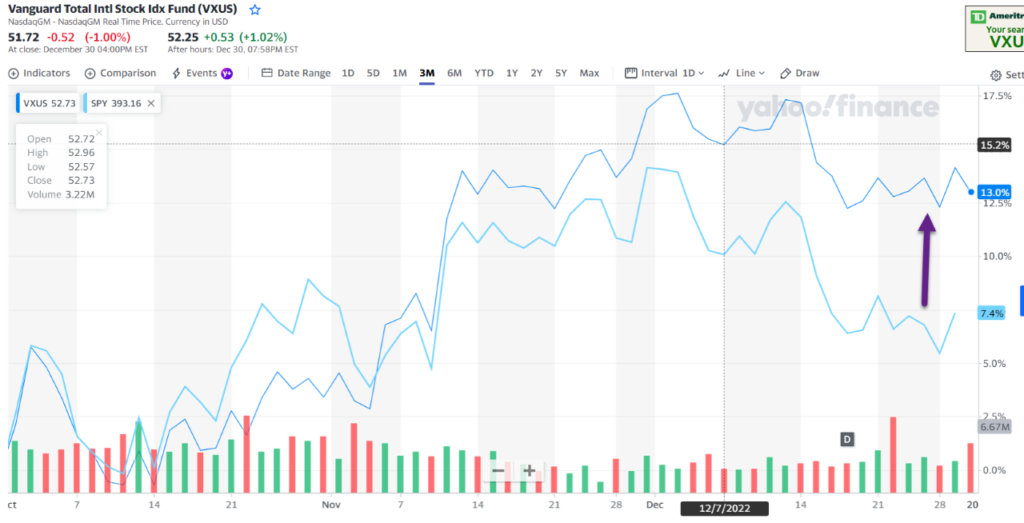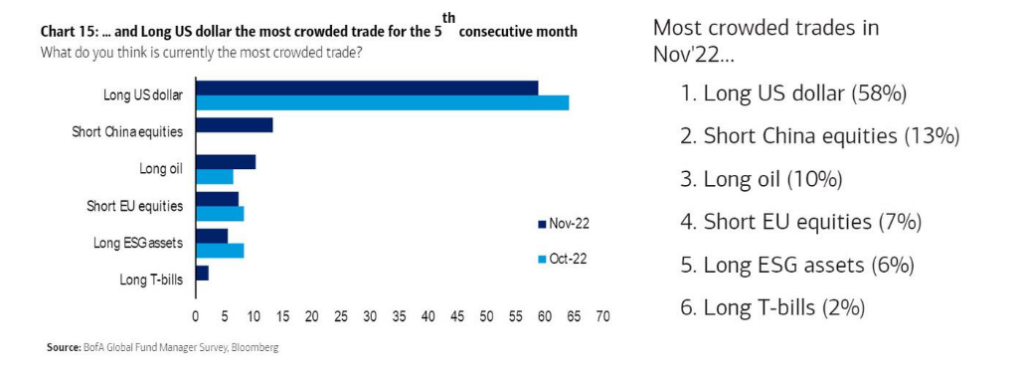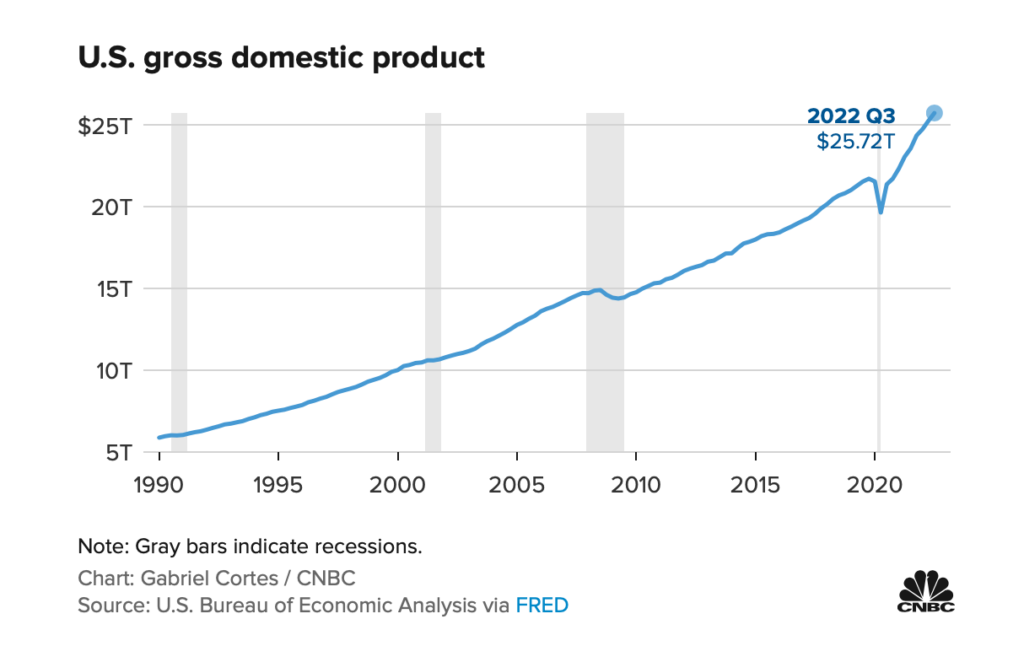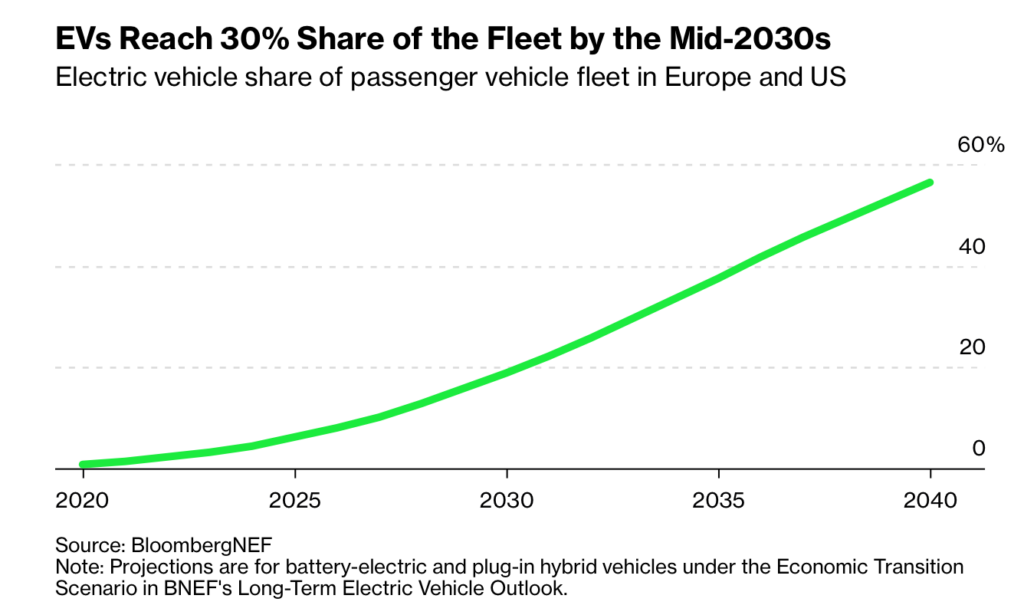1.Q4-Vanguard International Stock Index +13% vs. S&P +7.4%

2. Don’t Follow the Most Crowded Trades….Nov 2022 MOST CROWDED

3.Most Crowded Long Dollar Trade…….Dollar ETF Straight Down Since November …Breaks 50day then 200day

4. Second Most Crowded Short China….MSCI China ETF +40% Since November Low

5. Classic Behavioral Finance…China Big Rally After Record Outflows
Dave Lutz at Jones Trading International investors pulled about $7.9 billion from China’s equity markets in October through the Stock Connect program, the second-largest monthly drawdown in the history of the trading link – Outflows picked up in recent days as global investors reacted negatively to Chinese President Xi Jinping’s cementing of power with a third term as the country’s paramount leader, WSJ reports.

6. Last Count MicroStrategy Owned 130,0000 Bitcoins
MSTR was first stock to make big crypto bet with its cash…breaking thru Covid lows….$1300 to $141

MicroStrategy Price to Sales Ratio 2010-2022 | MSTR. 12x Sales to 3x Sales 2 years

https://www.macrotrends.net/stocks/charts/MSTR/microstrategy/price-sale
7. Gold Rallied in December….Outperforming the Rest of Commodities.
Gold Vs. Commodity Index …50day thru 200day to upside.

8. U.S. GDP Survives Recessions and Keeps on Moving Higher

https://www.cnbc.com/2022/12/23/why-everyone-thinks-a-recession-is-coming-in-2023.html
9. EV Fleet Set to Reach 30% by 2035
Between 2030 and 2035, electric vehicles will make up 15% to 33% of the passenger vehicle fleet in Europe and the US, and EV charging will be truly mass market

10. 3 Types of Soft Skills Employers Look for Today
Soft skills, like any other skills, can be mastered with enough practice.
KEY POINTS
- When it comes to professionalism, employers look for someone who understands how their own actions affect the work as a whole.
- Critical thinking requires a balance of keeping an open mind and seeking new solutions while mastering established best practices first.
- Mastering the basics of teamwork is one of the best ways to set oneself apart as high-potential leadership material.
More and more employees these days are not used to conforming to the norms of the in-person workplace—nor do they necessarily think they should.
Following months, even years, of remote or hybrid work, many people do not realize how much “just doing their own thing” may make their attitude or behavior maladaptive in the office. Ironically, it is often those with the best technical skills who lack soft skills. Maybe they’ve gotten away with it for so long because they are so good at what they do. Maybe they think they are just not “good at” soft skills. Many more simply have no concept of the incredible power of the old-fashioned basics.
The good news is that soft skills, like any other skills, can be mastered with enough practice.
In a labor market where it is increasingly difficult to stand out based on technical expertise alone, what are the soft skills people would be wise to start building? After all, there are as many soft skills as there are definitions. These are the three top types of soft skills employers are looking for.
1. Professionalism
Professionalism is probably the most abstract of the types of soft skills, and certainly the most dependent on context. What professionalism means in one organization can be very different from what it means in another. In general, what most employers mean when they say they are looking for professionalism is someone who understands how they as an individual affect the work as a whole. That can mean anything from personal performance relative to broad standards, or how one’s behavior impacts the health of the team.
These are the most cited missing basics of professionalism:
· Self-evaluation: Regularly assessing one’s own thoughts, words, and actions against clear meaningful standards; and one’s own performance against specific goals, timelines, guidelines, and parameters.
· Personal responsibility: Staying focused on what one can control directly—principally oneself—and controlling one’s responses in the face of factors outside one’s own control.
· Positive attitude: Maintaining and conveying a positive, generous, enthusiastic demeanor in one’s expressions, gestures, words, and tone.
· Good work habits: Wellness, self-presentation, timeliness, organization, productivity, quality, follow-through, and initiative.
· Interpersonal communication: Attentive listing, observing, and reading; perceiving and empathizing; effective use of words, tone, expressions, and gestures—verbal, written, and otherwise; one-on-one and in groups; in-person and remotely.
2. Critical thinking
Some people (and their managers) fall into the trap of believing their work doesn’t require critical thinking—to use the classic phrase, it’s not “knowledge work.” Whatever your job, knowledge work is not about what you do, but how you think about what you do. Some people understand this but end up reinventing the wheel. Critical thinking requires a balance of keeping an open mind and seeking new solutions while mastering established best practices first.
These are the core basics of critical thinking, no matter what type of work you do:
· Proactive learning: Keeping an open mind, suspending judgment, questioning assumptions, and seeking out information, technique, and perspective; and studying, practicing, and contemplating to build one’s stored knowledge base, skill set, and wisdom.
· Problem-solving: Mastering established best practices—proven repeatable solutions for dealing with regular recurring decisions—to avoid reinventing the wheel. Using repeatable solutions to improvise when addressing decisions that are new but similar.
· Decision-making: Identifying and considering multiple options, assessing the pros and cons of each, and choosing the course of action closest to the desired outcome.
3. Teamwork
In today’s working environment of increasingly collaborative relationships, teamwork is a critical skill in every role in any organization. In fact, mastering these basics of teamwork is one of the best ways to set yourself apart as high-potential leadership material:
· Appreciating context: Reading and adapting to the existing structure, rules, customs, and leadership in an unfamiliar situation.
· Citizenship: Accepting, embracing, and observing, not just the rights and rewards, but the duties of membership/belonging/participation in a defined group with its own structure, rules, customs, and leadership.
· Service: Approaching relationships in terms of what you have to offer—respect, commitment, hard work, creativity, sacrifice—rather than what you need or want.
· Playing your position: Doing the part assigned (or relegated) to you to support the larger mission; coordinating, cooperating, and collaborating with others in pursuit of a shared goal; supporting and celebrating the success of others.